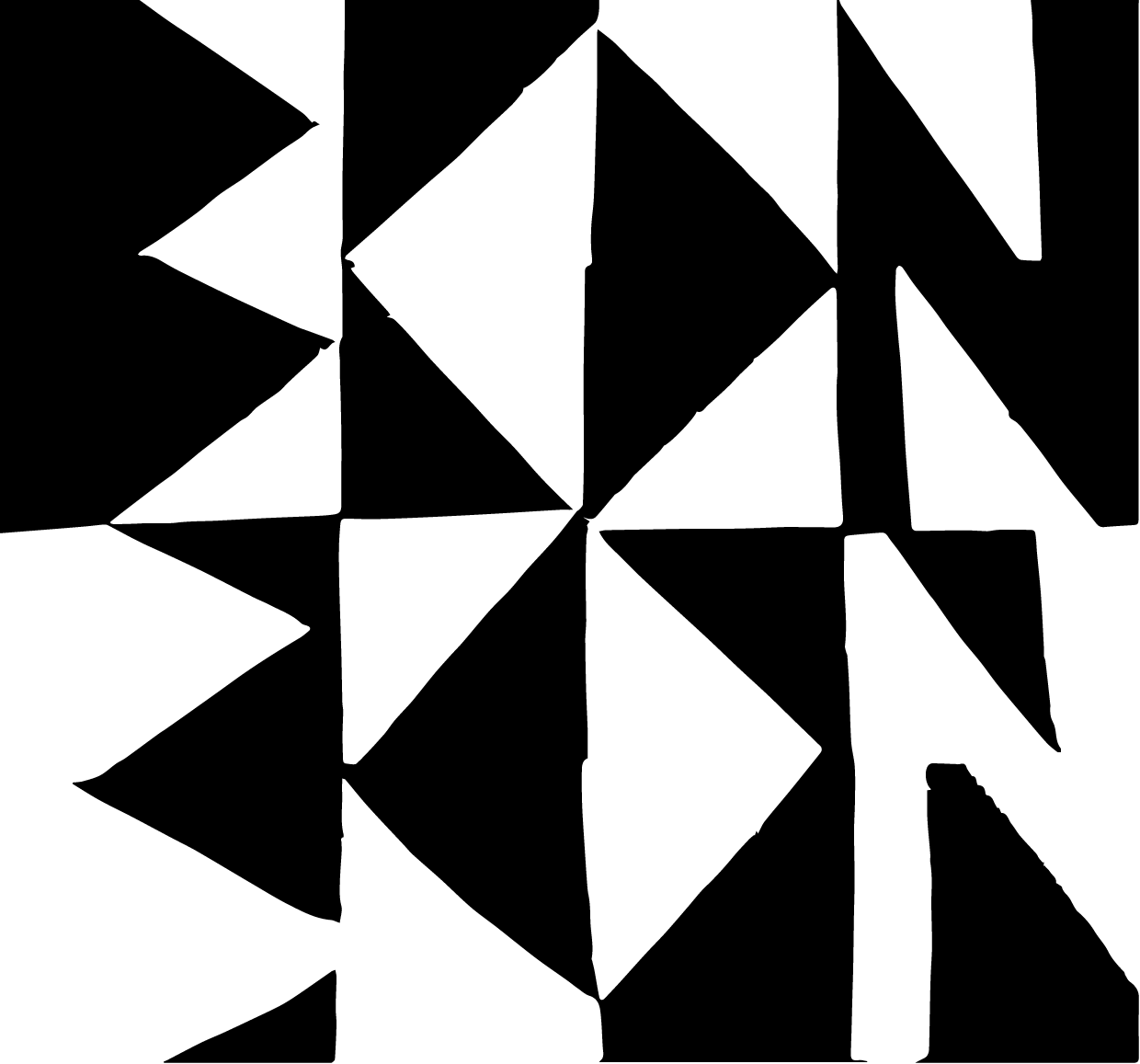Myth is the power of place speaking.
Sean Kane
Table of Contents
How do we mobilize stories and myth for regeneration, empathy, and a different way of relating to the landscapes we inhabit?
This eleven-day gathering is for challenging our industrialized sense of self and relation to the ecosystems we inhabit and rely on. It is for researching, debating, and practicing post-oil aesthetics and culture. It is for entering a shared effort that goes forward and amplifies itself in the places, cities, landscapes, narratives, and congregations we carry it to.
One of the biggest challenges to addressing climate breakdown is the fact that we exist primarily in terms of oil use and the relationships it structures every moment of every day. Constantly relating to the world in this way cauterizes individual and collective petro-subjectivities, a numbing highly industrialized sense of self and society that can seem impossible to exit. In nearly every articulation of how we deal with climate breakdown—from underground acts of sabotage or the withdrawal into the dark mountains, to mainstream activist efforts and green capital abstractions—we see the violence and logic of oil replicated incessantly. This goes unarticulated and unchallenged. What can we do together to start de-industrializing our sense of self while building a culture of survival, healing, and re-wilding that is for not only ourselves, but also our land bases, and all the non-human inhabitants, organic and other, that share them with us? We know the power of myth and how dominant ones like infinite economic growth and technological progress are destroying our planet. How do we mobilize stories and myth for regeneration, healing and a different way of relating?
Grounding our search in local struggles to shift our relationships to land, food, culture, climate breakdown, and each other, we will be introduced to and develop embodied learning skills to understand how powerful our perceptual-emotional-ideational capacities are beyond the very limited narratives of collapse, survival, daily life, our culture replicates. These practices will open up our thinking and imagination to generate new narratives of survival, community, and care. We will work to prepare for what lies in the deep times ahead, that haze that sits where the Anthropocene is the long past. These activities will be combined with discussions, visiting speakers, and excursions to places that will help focus our efforts and make them resonant well beyond our short time together.
Speakers and Facilitators
Here are the amazing people we have invited to come and talk to the camp as well as facilitate embodied learning, workshops in a sauna made especially for the camp, excursions out into the highlands and more.
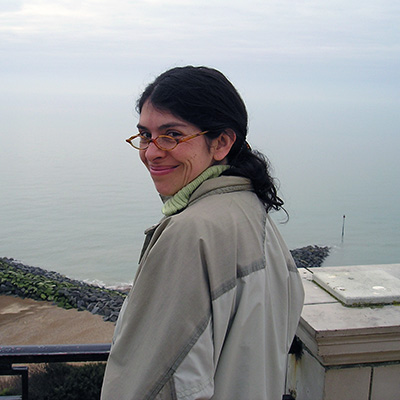
Ximena Alarcón is an artist who engages in listening to migratory spaces and connecting this to individual and collective memories. She is interested in creating sound art works, using networked technologies, derived from listening experiences in interstitial spaces where borders become diffused, such as underground transport systems, dreams, and the ‘in-between’ space in the context of migration. Ximena has a PhD in Music, Technology and Innovation, from De Montfort University. She has studied Deep Listening practice with Pauline Oliveros and in 2012 she obtained a Deep Listening certificate. Since 2011 she has worked as a Research Fellow at Creative Research into Sound Arts Practice (CRiSAP).
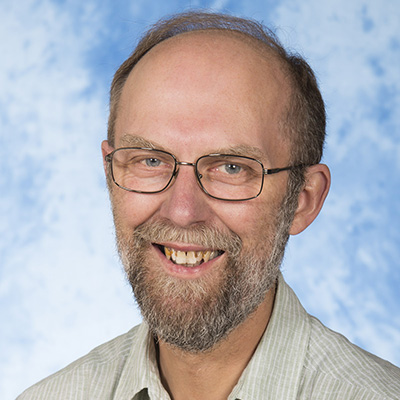
Bruce Ball is a soil scientist working part time for SRUC, Edinburgh. He has researched soil structure, soil care and greenhouse gas emissions from soil for over 30 years. He is interested in increasing soil quality and personal awareness of soil by using visual assessments of soil structure. He also increases public soil awareness by use of creative writing and poetry. He has written a book ‘The Landscape Below’ based on his experiences in small agricultural communities to show how caring for the soil is similar to caring for ourselves. This can help us to restore links with others and with the environment and thereby re-awaken impulses of cooperation, economy and compassion.
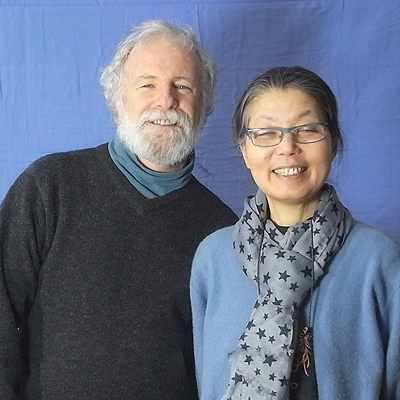
Tim Collins and Reiko Goto are environmental artists, researchers and authors working together since they first met in San Francisco in 1985. Early work focused on a public realm model of practice dealing with urban critters, habitat and the cultural understanding of water. Over the last fifteen years they maintain a focus on the cultural conditions of environmental change and its human-non-human impacts. The primary themes that inform their mature work began with ethical and aesthetic entanglements found in ecological restoration, leading to ideas about the emancipation of natural systems from the constraints of industrial culture. More recently this led to new ideas about empathy between human and non-human entities.
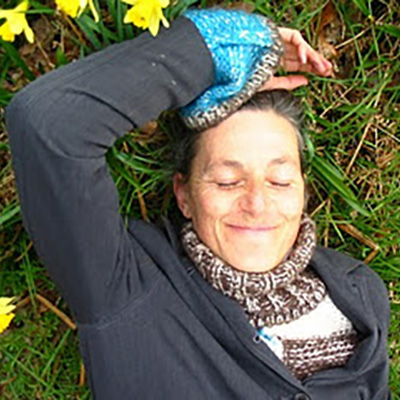
Charlotte Du Cann is a writer, editor and community activist, living in coastal Suffolk. She is Art Editor of the Dark Mountain books and the editor of “Playing for Time – Making Art as if the World Mattered” (Oberon Books). Previously a lifestyle journalist in London, she went on the road during the 90s and has written extensively about cultural and metaphysical downshift. Between 2008-14 she worked in grassroots communications within the Transition movement, including founding the Social Reporting Project and Transition Free Press. Her book, “52 Plants That Shook My World – A Radical Return to Earth” is published by Two Ravens Press.

Dudendance Theatre create work that defies a singular interpretation having pioneered an original voice by layering film, soundtrack, narrative and movement. Each new piece exists within an ever evolving narrative whereby characters re-emerge in later work. Very often live performance is transposed into film- shifting from the rehearsal studio onto location and then re-absorbed into live work. The starting point remains physical and devised from rigorous research with international collaborators as well as non-professionals. Dudendance also create site-specific pieces, most recently as durational work in public spaces.
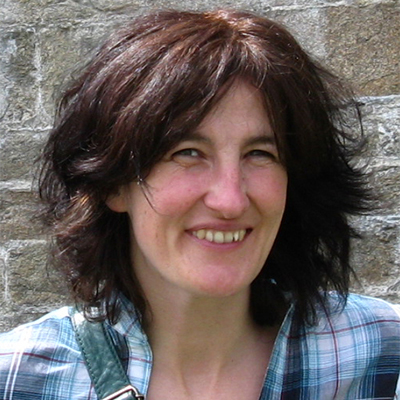
Karen Grant is a campaigner with Reforesting Scotland’s Thousand Huts campaign (www.thousandhuts.org). She has a particular interest in the role of spaces in autonomous organising and empowerment. Her background includes work with social justice campaigns at a European level, work with the Green members of the Scottish Parliament, and then 5 years as Director of Scottish Education and Action for Development where she developed projects supporting community-based climate action. She sat for 5 years on the decision-making panel of the Climate Challenge Fund. She recently graduated in painting from Glasgow School of Art and co-manages a farm in North East Scotland. She dreams of having her own hut.
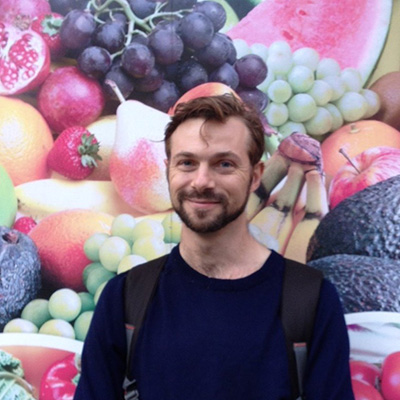
Nick Hunt is a writer and storyteller, and co-editor of the Dark Mountain books. His first book “Walking the Woods and the Water” is an account of an eight-month walk from the Hook of Holland to Istanbul. He has written for The Guardian, The Economist, Resurgence, New Internationalist and other publications, but prefers telling stories around campfires.
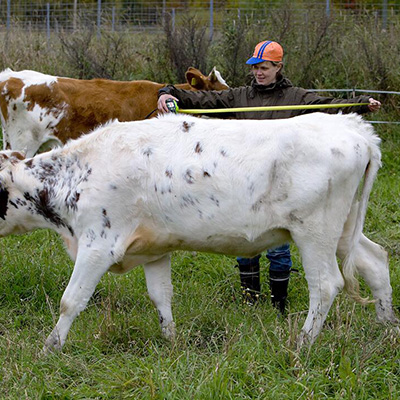
Mari Keski-Korsu is an transdisciplinary artist. She explores how ecological and socio-economical changes manifest in everyday life. How does macrocosm become microcosm and visa versa? Mainly, the starting point is in location, a place and relations to it and collaborations with different kinds of communities, individuals, and species. Keski-Korsu’s practice can be, for example, interventions, documentary, performance, virtual worlds, and installations. She is interested in the relations in between art, activism, politics, and science. She will facilitate rhythm balancing whisking sessions in a sauna during the camp.

Nance Klehm is a process-oriented ecologist with proven experience in restructuring existing situations into more functional systems with a strong social dynamic. Nance and her work has been reported on in over 50 national and international media outlets including radio, print and 13 books. She has formally exhibited her work nationally and internationally in galleries and museums. She was named a 2012 Utne Visionary and has been a two time finalist for the Curry-Stone Prize. As Director of Social Ecologies, she started ‘The Ground Rules’ which runs six neighborhood compost-soil centers and trains residents in community bioremediation in Chicago. She is currently at work on a book on: Soil.

Alastair McIntosh. I live within the old parish boundary of Govan in the city of Glasgow, Scotland, am an independent scholar, activist, writer, speaker and broadcaster from the Isle of Lewis and work freelance but with academic links that include being an Honorary Senior Research Fellow (visiting professor) in the College of Social Sciences at the University of Glasgow and a Research Fellow at the School of Divinity (New College) in the University of Edinburgh. I also serve locally in Govan as a founding director of the GalGael Trust and a Fellow and special advisor to the Centre for Human Ecology (CHE) of which I was previously director.

James Reid. Tap o’ Noth Permaculture is a smallholding and demonstration site based near the village of Rhynie in rural Aberdeenshire. Both a ScoLAND Centre for the Permaculture Association of Britain and an official Master Plan site for the Permaculture Research Institute of Australia, Tap o’ Noth hosts courses and workshops in the fields of ecological design, sustainable agriculture and re-skilling in traditional rural crafts and practices. Home to James Reid and his family, the smallholding is 8 acres of ever expanding food gardens, animal systems, ponds, broadleaf woodland and forest gardens plus many more informative examples of applied Permaculture Design.
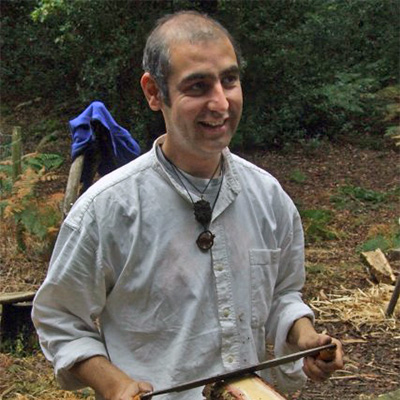
Paul Spencer trained as a pattern cutter in the clothing trade 30 years ago in Bradford, west Yorkshire. Over the last 20 years he has adapted and retrained as an upholsterer making boat covers and awnings. For last 14 years he has been making and developing Mongolian style yurt dwellings in hopes to find affordable, low impact, year round living. Spencer wants to share his knowledge and skill with the next generation. He will also lead a two-day yurt building workshop during the camp. Spencer’s company Highland Yurts is providing two yurts for the camp.

Andy Wightman: I am a writer, researcher, analyst, commentator and activist on issues of land, power, governance, democracy and money. Over the past 20 years I have undertaken a wide range of work on land tenure, landownership, land reform and, more recently community land rights, governance and the hegemonic dimensions of land relations. In 2010, I wrote The Poor had No Lawyers (Birlinn), an attempt to provide an historical analysis of the land question and to reinvigorate debate around land relations. I remain hopeful of success in countering hegemonic landed power in all its guises.
Camp Organizers
We are the people who have organized and designed the camp. Please get in touch if you any questions or are interested in hosting a similar gathering.
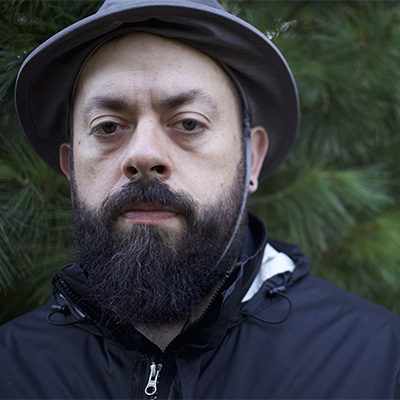
Brett Bloom is an artist, activist, writer and publisher. He works mainly in collaborative groups, like Temporary Services, and situations. He regularly works with ecological issues. In the summer of 2015, Bloom will coordinate two long, intensive training sessions in London and rural Scotland. They are part of a multi-year effort called Breakdown Break Down, that mobilize others to articulate and build a civil culture to prepare for and survive climate chaos and breakdown. One key goal is to generate new stories that replace western petro-subjectivity, our industrialized sense of self and place, with other narratives and possibilities.
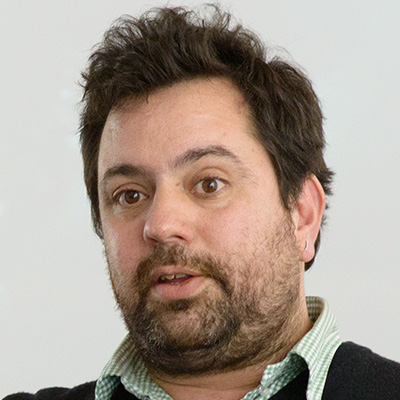
Nuno Sacramento was born in Maputo, Mozambique and now lives and works in Aberdeenshire where he is Director of the Scottish Sculpture Workshop in Lumsden. He is a graduate of the deAppel curatorial training programme and also completed a Doctorate in Visual Arts at the School of Media Arts and Imaging, Duncan of Jordanstone College of Art and Design, Dundee. He is currently committed to issues of land use and ownership, climate change and the commons, in relation to art practice. He is involved in research, project curation, writing and lecturing.
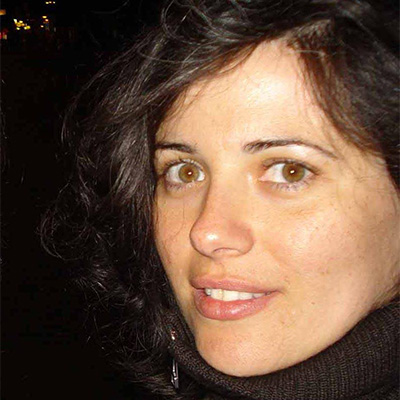
Originally from Lisbon, Portugal, Sofia Oliveira studied Architecture in Lisbon and Italy and worked for several practices in Lisbon and Amsterdam. She also has a Master degree in Sustainable Community Design from Heriot-Watt University in Edinburgh, and has a particular interest in low carbon buildings, passive design with natural ventilation, environmental friendly materials and the adaptation of buildings for climate change. She will participate in the camp site planning and huts design.
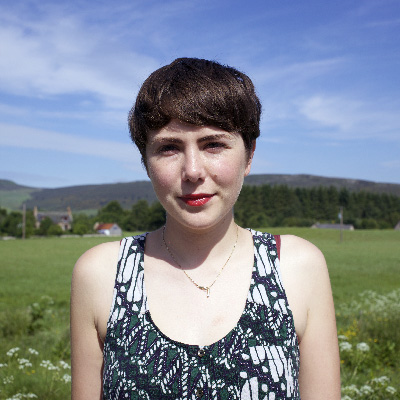
Yvonne Billmore graduated from Duncan of Jordonstone College of Art and Design in 2011 with a BA (hons) in Fine Art. She went on to work at GENERATORprojects and as an Engagement Co-ordinator for Dundee Survival Group. Her personal practice encompasses cross-media sculptural work; including performance and printmaking. She regularly exhibits her work within Scotland.

Sara Gallie is the current Office & Finance Manager at SSW since 2013. Sara is also a practising artist interested in landscape and natural occurrence and is an MA graduate of Gray’s School of Art in Aberdeen.
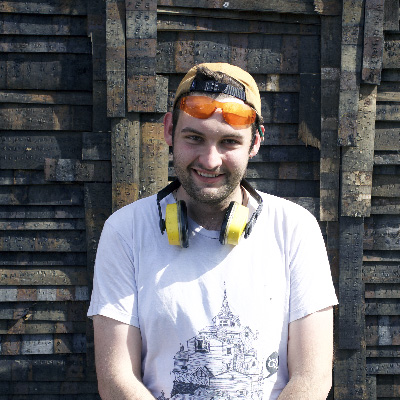
Uist graduated from Duncan of Jordonstone College of Art in May of 2014. He currently works as SSW’s Junior Technician, as part of a Youth Trainee Programme. Working alongside our Senior Technician in the workshops, Uist is expanding his knowledge and skill base. This is in keeping with Uist’s personal practice where he is focused on ‘developing skills though an art practice’.

Conor Baird
Camp Schedule
Here is an overview of the schedule for the camp. Activities during the day are only for those staying in the camp. Evening presentations are public and we invite anyone who wants to join us. A PDF of a more detailed schedule can be downloaded here.
• Arrive at camp
• Orientation packet, housing assignments
• Introduction of the camp, facilitators, participants
• Introduction of the scheduled activities. Group exercises and discussion.
• Introduction to Deep Listening and other embodied learning exercises, facilitated by Ximena Alarcón.
• Afternoon of assorted embodied exercises, facilitated by Ximena Alarcón and Brett Bloom
• Presentation: Brett Bloom on “Petro-Subjectivity” (8:00 PM)
• Mari Keski-Korsu (MKK) built a sauna for the camp. She is doing whisking balancing & healing in the sauna. Offered every night of the camp.
• Embodied learning exercises related to general topic of the day
• Workshop with Mari Keski-Korsu and Clydesdale horses
• Visit to Tap O Noth Permaculture Research Institute
• Presentation: Andy Wightman (8:00 PM)
• Sauna & whisking with MKK
• Embodied learning exercises related to general topic of the day
• Workshop with Nance Klehm
• Further embodied learning exercises
• Presentation by Nance Klehm
• Presentation: Alastair McIntosh (8:00 PM)
• Sauna & whisking with MKK
• Embodied learning exercises related to general topic of the day
• Workshop with Alastair McIntosh
• Soil workshop with Bruce Ball (camp participants are asked to bring soil samples from where they live)
• Presentation by Bruce Ball
• Presentation: Tim Collins and Reiko Goto (8:00 PM)
• Sauna & whisking with MKK
• Day long excursion to Trees For Life and their 10,000 acre reforestation initiative
• Plant a grove of trees to commemorate the camp and support the reforestation effort
• Sauna & whisking with MKK
• Embodied learning exercises related to general topic of the day
• Reading and discussion groups
• Presentation: Nuno Sacramento
• Sauna & whisking with MKK
• Embodied learning exercises related to general topic of the day
• Reading and discussion groups
• Presentation: Charlotte Du Cann and Nick Hunt from the Dark Mountain Project (8:00 PM)
• Sauna & whisking with MKK
• Embodied learning exercises related to general topic of the day
• Workshop with Charlotte Du Cann and Nick Hunt from the Dark Mountain Project
• Walk and presentation by Nuno Sacramento of his book made for the camp
• Presentation: Karen Grant from A Thousand Huts – Reforesting Scotland (8:00 PM)
• Sauna & whisking with MKK
• Embodied learning exercises related to general topic of the day
• Presentation: Performance by Dudendance Theatre & closing party (8:00 PM)
• Sauna & whisking with MKK
• Participants carry their experiences at the camp home with them
Credits & Allies
The following individuals and organizations have either help support Camp Breakdown Break Down directly or have given support in the past that has helped in the development of the camp.
SSW provides residencies, training and exhibition opportunities for visual artists who wish to research ideas, experiment with new techniques or develop existing skills. Our high quality making facilities are supported by excellent technical staff, and a residency at SSW offers time, space and engagement with other visual artists in the stimulating rural environment of north-east Scotland. SSW
Frontiers in Retreat is a five-year collaboration project that fosters multidisciplinary dialogue on ecological questions within a European network formed around artist residencies. The project sets out to examine processes of change in particular, sensitive ecological contexts within Europe, to reflect them in relation to each other and to develop new approaches to the urgencies posed by them. Moreover, the project recognises the necessity of multidisciplinary approaches to the current ecological concerns and aims to develop means and platforms for this through methods of contemporary art. Frontiers in Retreat.
Many thanks to Paul Spencer for his beautiful yurts we hired for the camp. Highland Yurts
The campaign for A Thousand Huts was launched in 2011 by Reforesting Scotland – a network which has campaigned for over 20 years for a sustainable forest culture in Scotland. The aim of the Thousand Huts campaign is to promote huts and hutting – the building and enjoyment of simple structures (usually wooden) for living, working and recreation in the countryside. We want to achieve this by securing a change of culture and attitude and reform of the law so that those who wish to build huts and pursue hutting can do so freely and within the law. A Thousand Huts
The Project Café is a social enterprise providing community space founded on good food bringing people together. They are providing catering for the camp.
